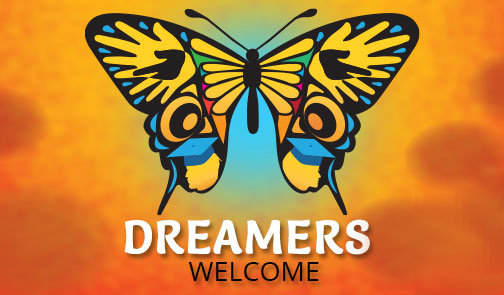Undocumented Student Support

Many members of the University administration, faculty, and staff recognize that undocumented students feel unsafe, confused, and frustrated because of the current political uncertainty. Consequently, all students at Wake Forest University, including those who are undocumented or qualify for the DACA program, can expect support across campus. Ultimately, skilled and caring staff and faculty are here to help undocumented students get the most from their Wake Forest experience and provide guidance as our students navigate their academic pursuits. The University will also work with students to ensure they are able to continue their studies and encourage students to seek support from the Office of Academic Advising should they encounter any personal or familial hardship or challenges due to changing immigration laws.
Wake Forest University recognizes that undocumented students, staff, and faculty, as well as those in families with mixed-immigration status, can experience unique stressors and confusion. The following campus partners are here to help.
- The University Counseling Center is here to provide mental health services to undergraduate, graduate, and professional school students on the Reynolda campus. Recognizing that changes in federal guidelines and enforcements can add stress to undocumented students and students in families with mixed immigration statuses, the Counseling Center is a confidential resource that provides support. For additional information, please call 336-758-5273 (24/7) to speak with a UCC colleague on the services available to interested students.
- The Office of the Chaplain provides holistic spiritual and emotional support to all students, faculty, and staff at Wake Forest. Recognizing that changes in federal guidelines and enforcement can add stress for undocumented students, faculty, and staff, or students, faculty, and staff in families with mixed immigration statuses, the Office of the Chaplain is a confidential resource and support. For additional information, please call 336-758-5210 or visit chaplain.wfu.edu to explore services available to interested students, faculty, and staff.
- The University will not voluntarily share protected student data with anyone other than the student and anyone authorized by the student or as otherwise allowed or required by law.
- The University will also work with students to support the continuation of their studies and encourage students to seek support from the Office of Academic Advising should they encounter any personal or familial hardship or challenges due to changing immigration laws and guidance.
- If you need additional information on how the institution responds to immigration inquiries from external parties, please visit this link.
- All undocumented students at Wake Forest University maintaining satisfactory academic progress will retain their institutional scholarship support.
Additional Resources and Information
If you need additional resources or information, please email Shaun Elliott at elliottl@wfu.edu.
Presidents’ Alliance Resource
Wake Forest has been a member of the Presidents’ Alliance on Higher Education and Immigration since 2019. As stated on the Alliance’s website, this group of “college and university leaders are dedicated to increasing public understanding of how immigration policies and practices impact our students, campuses, and communities.”
Please visit the Alliance’s website for the latest information on immigration reform and its impact on Higher Education.

